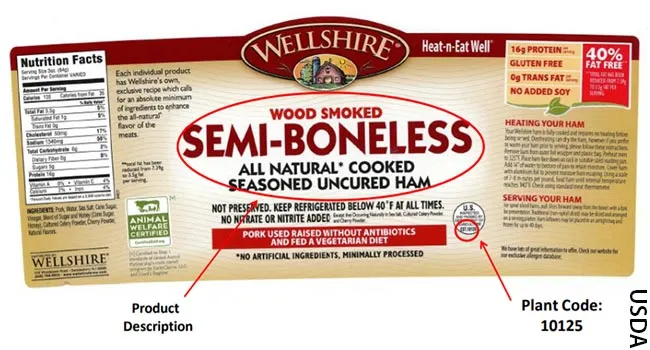Breathe Better, Live Stronger: A Guide to COPD Nutrition for Lung Health

Living with Chronic Obstructive Pulmonary Disease (COPD nutrition) requires a holistic approach that includes proper diet, exercise, and lifestyle changes. The right nutritional choices can make a significant difference in managing symptoms, improving lung function, and enhancing overall well-being. This guide will help you understand the impact of nutrition on lung health and how you can make smart food choices to breathe better and live stronger.
Why Nutrition Matters for COPD Patients
Your lungs need energy to function, and the right foods can help reduce inflammation, strengthen respiratory muscles, and support immune health. Poor dietary habits can lead to excess mucus production, bloating, and shortness of breath, which can worsen COPD symptoms.
A well-balanced diet that focuses on lung health can improve oxygen circulation, reduce inflammation, and support overall respiratory function. Incorporating anti-inflammatory foods, lean proteins, and healthy fats can be a game-changer in your COPD management plan.
Best Foods for COPD Nutrition
1. Anti-Inflammatory Foods
Inflammation plays a key role in COPD progression. Including anti-inflammatory foods in your diet can help manage symptoms effectively. Some top choices include:
-
Leafy greens (spinach, kale, and Swiss chard)
-
Berries (blueberries, strawberries, and raspberries)
-
Fatty fish (salmon, mackerel, and sardines)
-
Nuts and seeds (walnuts, flaxseeds, and chia seeds)
-
Olive oil and avocados
2. Protein-Rich Foods for Respiratory Muscle Strength
Strong respiratory muscles are essential for better breathing. Protein supports muscle maintenance and repair, making it an important part of COPD nutrition.
-
Lean meats (chicken, turkey, and lean beef)
-
Eggs and dairy (Greek yogurt, cottage cheese, and milk)
-
Plant-based proteins (tofu, lentils, and quinoa)
3. Hydrating Foods to Reduce Mucus Production
Staying hydrated is crucial to preventing thick mucus buildup, which can obstruct airways. While drinking plenty of water is key, incorporating water-rich foods can also help:
-
Cucumbers
-
Watermelon
-
Oranges
-
Soups and broths
Foods to Avoid for Better Lung Health
Certain foods can worsen COPD symptoms by increasing bloating, mucus production, and inflammation. Avoiding these can make breathing easier:
-
Processed foods (high in preservatives and sodium)
-
Dairy products (can thicken mucus for some individuals)
-
Fried and greasy foods (contribute to bloating and discomfort)
-
Sugary beverages (lead to inflammation and weight gain)
Special Considerations: Cystic Fibrosis and Asthma Nutrition
While COPD nutrition focuses on improving lung function and reducing inflammation, individuals with Cystic Fibrosis nutrition and Asthma and nutrition concerns also benefit from similar dietary choices. Those with Cystic Fibrosis require higher calorie intake to maintain weight and energy, while asthma patients should focus on reducing inflammation through a diet rich in antioxidants and omega-3 fatty acids.
Practical Tips for Everyday Nutrition
-
Plan Balanced Meals: Ensure your plate includes a combination of protein, healthy fats, and fiber-rich carbohydrates.
-
Eat Small, Frequent Meals: Large meals can make breathing more difficult, so opt for smaller portions throughout the day.
-
Stay Hydrated: Drink at least 6-8 glasses of water daily to prevent mucus buildup.
-
Monitor Sodium Intake: Excess salt can lead to bloating, making it harder to breathe.
-
Consider Nutritional Supplements: If you have difficulty maintaining a balanced diet, consult your doctor about vitamin D, calcium, and omega-3 supplements.
Final Thoughts
Your diet plays a vital role in managing COPD nutrition and overall lung health. By making informed choices, you can reduce symptoms, enhance your energy levels, and breathe easier. Whether you are dealing with COPD, Cystic Fibrosis nutrition, or Asthma and nutrition, a well-planned diet is your best ally in leading a healthier and more active life.
Take control of your health today by adopting these nutritional strategies and supporting your lungs with the best foods possible!
What's Your Reaction?

















